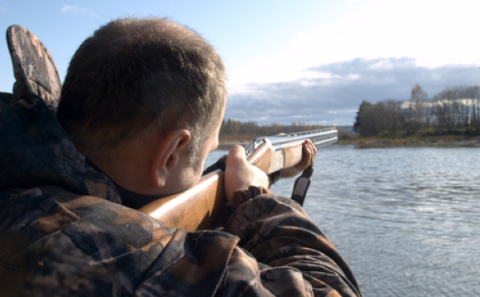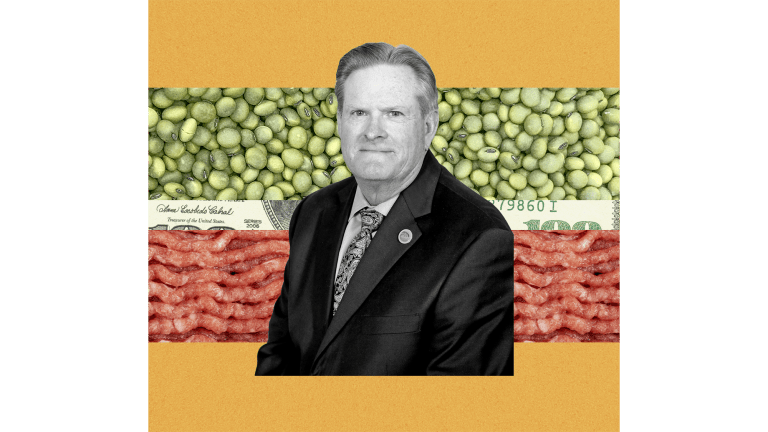A recent poll by the National Wildlife Federation, which counts more than 420,000 members across 42 states, found that 66 percent of hunters and anglers surveyed believed that global warming was already occurring.
A Gallup poll in March 2009 found that only 53 percent of the general population shared the same view.
People who spend a lot of their time outdoors are more likely to see the obvious — the climate is changing and invasive species like the bark beetle are ravaging the West. That’s a key point of this piece in the NYT blog, Green Inc:

More than 13,000 hunters and anglers from across the country joined a “virtual town hall” teleconference on Tuesday to hear a discussion of the impact of climate change on fish and wildlife populations, and to voice their support for federal action to limit carbon emissions.
The call was hosted by the National Wildlife Federation Action Fund, American Hunters and Shooters, and the Theodore Roosevelt Conservation Partnership.
“It’s very important in my opinion that we do pass the climate change bill,” said Ted Roosevelt IV, a prominent conservationist and the great-grandson of President Theodore Roosevelt, during the phone call.
The virtual meeting is part of a recent wave of climate activism by national hunting and fishing groups, whose conservative-leaning membership has expressed growing concern with the impacts of climate change on wildlife.
It’s great to see a broader group of the population starting to engage in what will be the central issue of our time. But then, for outdoorsmen and -women, the changes driven by human emissions are all-but-impossible to miss:
With their pastime bringing them close to the landscape, hunters and anglers are encountering changes in nature associated with the onset of climate change, from alteration in the seasons and the migratory patterns of animals, to increasingly intense wildfires across broad the West.
“We’re already seeing the effects from climate change,” said George Cooper, the president of the Theodore Roosevelt Conservation Partnership.
John Warner, a former Republican senator from Virginia who co-sponsored an unsuccessful carbon cap-and-trade bill with Senator Joseph Lieberman in 2007, recounted his own personal encounter with the impacts of climate change during the call.
Mr. Warner, a lifelong hunter and fisherman, described working for the Forest Service in the Idaho panhandle in the 1940s, in “pristine forests” where streams teemed with fish.
When he returned to Idaho several years ago, he said, he found the same forests decimated by the invasion of the pine beetle, whose spread has been linked in part to rising temperatures in winter.
“It was one of the saddest trips of my life,” said Mr. Warner.
Responding to a question from a hunter in Michigan about the prospects for Republican support for climate change legislation recently introduced in the Senate, Mr. Warner said he was hopeful the bill would receive bipartisan support, which may be crucial to its passage.
“I think we’re going to see Republican participation,” he said. “It would be a tragic situation for a bill to move through strictly on a partisan basis.”
One goal of hunting and fishing groups is to secure dedicated funding for state wildlife agencies for “adaptive management” practices, which aim to reduce the impact of climate change on wildlife and wilderness areas.
The Waxman-Markey climate and energy bill contains provisions establishing a National Adaptation Council and National Climate Change Adaptation Program. Funding would come from a portion of proceeds from the sale of emission permits.
Chris Wood, the chief operating officer of Trout Unlimited, a sport fishing group with more than 140,000 members in 400 chapters across the country, said most members support the group’s lobbying efforts on Capitol Hill in support of climate legislation — though he has received a few angry letters.
“In a couple of cases it’s been vocal,” he said. “It’s been incidental to the support that we’ve been getting from the vast majority of members who are concerned about this.”
If we don’t act fast enough, human-caused climate change will wipe out the majority of species on land and sea, and turn a livable climate into “Hell and High Water.”


